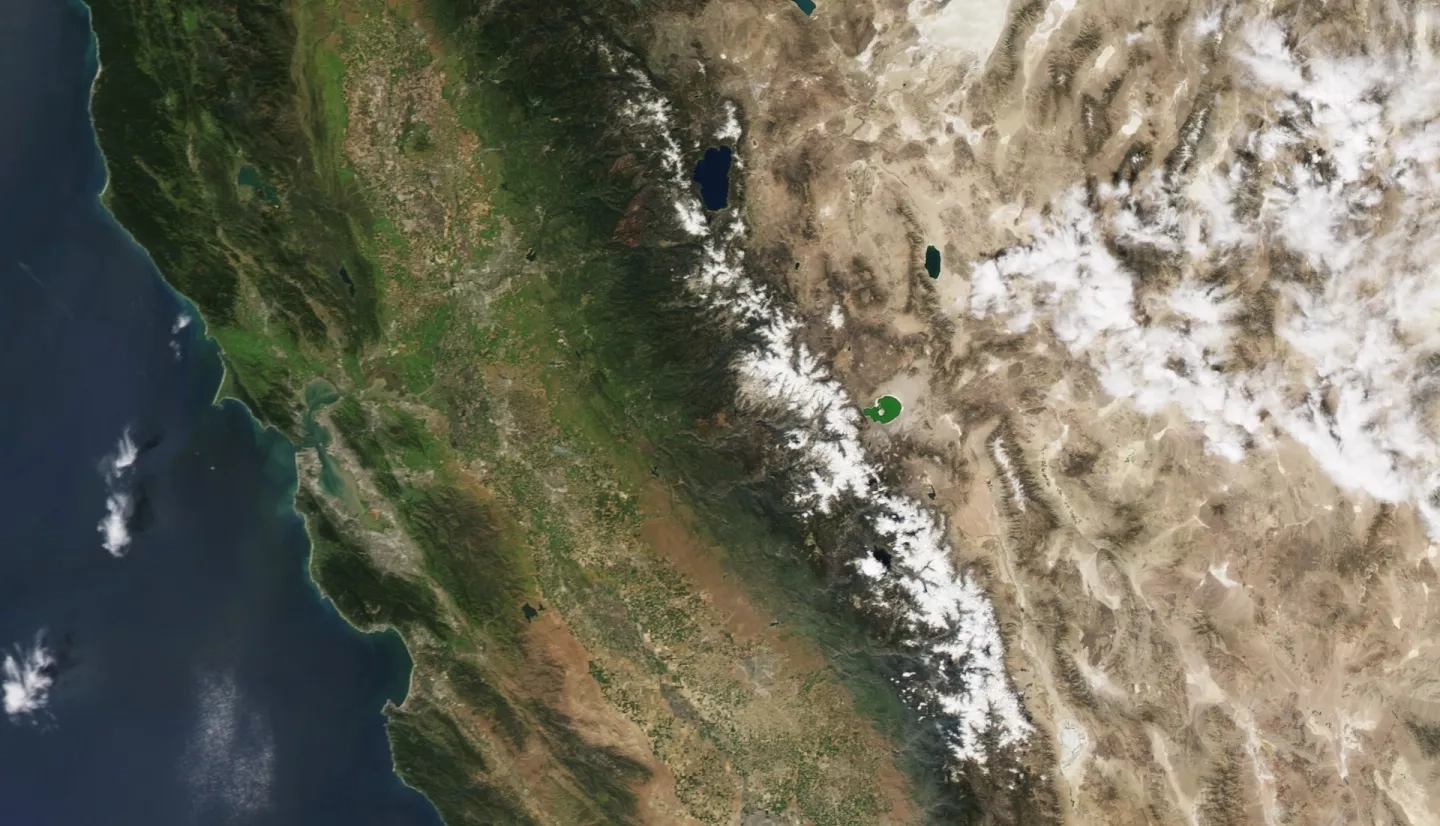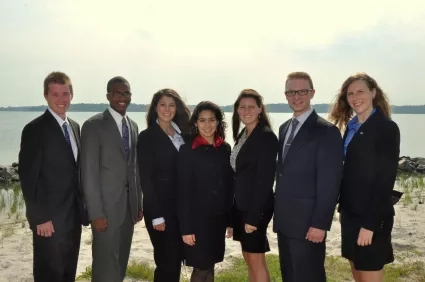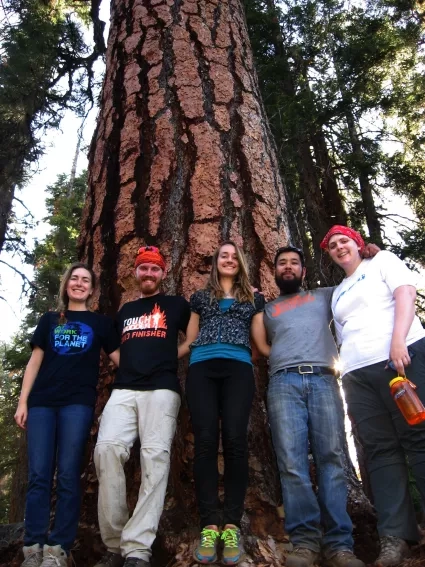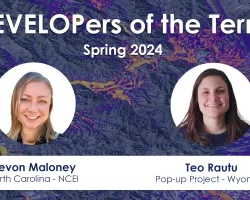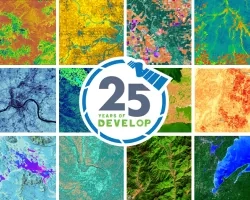DEVELOP Alumni Spotlight
Chase Mueller’s NASA DEVELOP experience spanned five project terms, three years, both coasts, and multiple job opportunities.
Chase first heard about DEVELOP while working on his Master’s degree in Earth Science at the University of Texas at San Antonio when his seminar professor pointed out the program. The following summer of 2012, Chase arrived at the DEVELOP office at NASA Langley Research Center for his first term with the goal of, “software and professional skill development.” There, he joined a team using the Aquarius sensor to measure sea surface salinity around the Amazon River Delta. His team worked to fill the measurement gaps between land and water, since pixels with any land are thrown out, creating a data gap near the shoreline.
His first DEVELOP project struck a chord—not only did Chase learn the, “mindset about how to approach the science and the exercise of writing scientific publications,” but he also later built a tool around Aquarius as part of his undergraduate thesis.
During the following summer of 2013, Chase headed to the West Coast to rejoin DEVELOP at Ames Research Center in the San Francisco Bay area where he participated in his first of four consecutive terms through the summer of 2014. His first project there focused on the Sierra Nevada region, studying how winter snowpack influences summer wildfires. The results and methods interested the partners so much that a three-term project was born with the goal of building a mapping system decision-support tool to streamline the methods of the first project.
At the conclusion of the third and final term, Chase stayed at Ames as a contractor working with his science advisor on a non-DEVELOP water quality project studying Nigeria for two years. Afterward, he assisted a handful of other projects at Ames, worked for two years as a contractor for Google, and then spent another two years traveling.
When Chase returned to his most recent job search, it didn’t take long for him to begin receiving interviews—even for jobs he didn’t think he was perfectly qualified for because they saw potential in him. “Cast a wide net. Remember, when you’re interviewing, that it’s not just you trying to get a job. You’re interviewing them just as much as they’re interviewing you. Remember that, take ownership of it, and it will help you find the right direction to go.” In the end, Chase received two competing job offers and is now a contracted Remote Sensing Data Scientist to the USGS. “My experience at DEVELOP put me in a position to get this job. I gained direct work experience, developed critical thinking, and learned how to present and communicate...I ended up at [USGS] because it reminded me of DEVELOP.”
Looking back on the path that led him to his current position, one thing was clear for Chase: “a lot of things at DEVELOP put me in a position to succeed.” Given his own success, when asked what advice he would give to someone just starting their first DEVELOP term, he shared:
“There are so many opportunities to be exposed to the wealth of knowledge that’s out there. It’s ok to say that you don’t know—ask questions and get involved with everything you can.”
On the other hand, if you are a DEVELOPer who is finishing your last term, Chase offered the following advice:
“Don’t underestimate what you can go for, apply for anything that interests you. Cast a wide net, be the interviewer, and build skills. When you move to that next position, you’re not necessarily going to get the same responsibilities you were given at DEVELOP, but if you’re going from one science to another, there’s always something you can build off of.”
